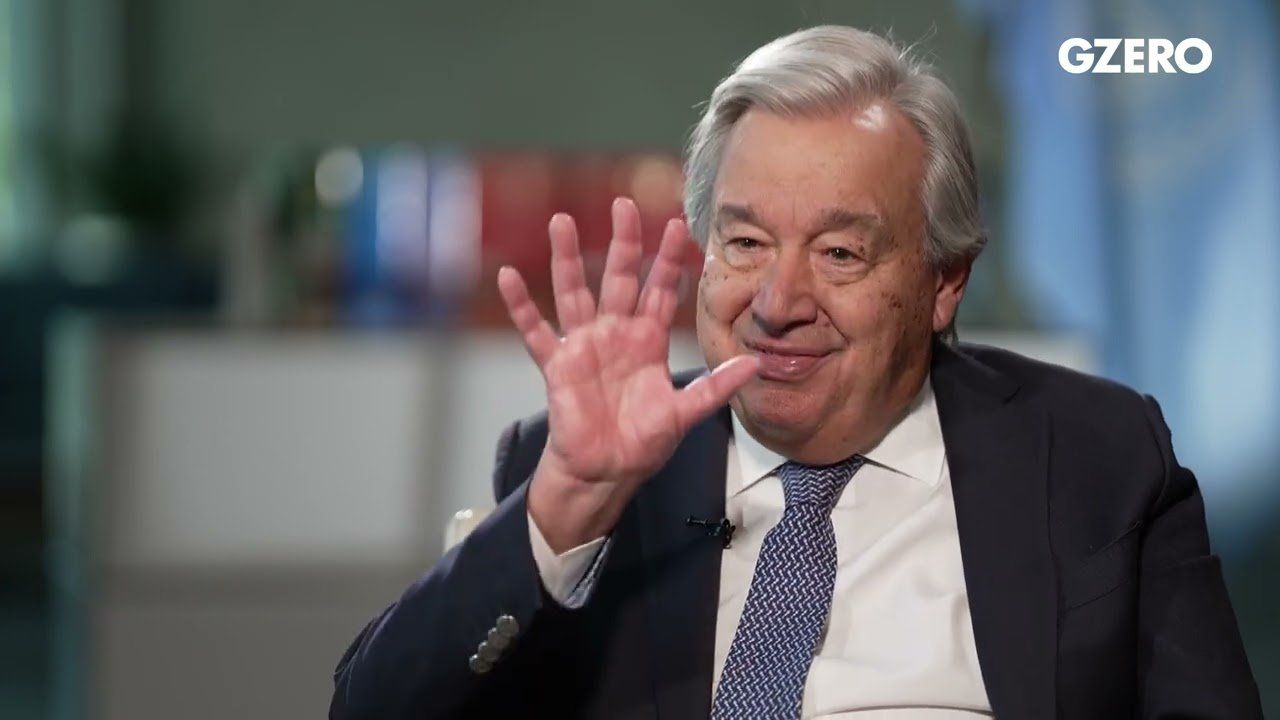Why António Guterres believes the UN should lead on AI: Exclusive interview

United Nations Secretary-General António Guterres warned at last year’s General Assembly, “It’s reform or rupture.” But reforming the UN to meet the economic and political realities of today’s world, one dividing it further into coalitions and blocs, is no easy task. In an exclusive interview for GZERO World, Guterres sat with Ian Bremmer on the sidelines of the UN General Assembly to discuss his vision for the future of the UN during his last term in office. Between ongoing wars in Ukraine and Gaza, the climate crisis threatening the lives of millions, a broken Security Council, and the growing power (and existential risk) of AI, there’s a lot to discuss. Can the UN adapt for the future? Can it show the world multilateralism still has a place amid all the fragmentation? Guterres believes change is always possible as long as there is will and determination.
“The United Nations has one important characteristic: Its legitimacy,” Guterres says, “It's a platform where everybody can be together.”
GZERO World with Ian Bremmer, the award-winning weekly global affairs series, airs nationwide on US public television stations (check local listings).
New digital episodes of GZERO World are released every Monday on YouTube. Don't miss an episode: subscribe to GZERO's YouTube channel and turn on notifications (🔔).
- Can the UN get the world to agree on AI safety? ›
- UN Secretary-General António Guterres: why we still need the United Nations ›
- Podcast: UN Secretary-General António Guterres explains why peace in Ukraine is his top priority ›
- Peace in Ukraine is world's priority, says UN chief António Guterres ›
- UN’s first global framework for AI governance - GZERO Media ›